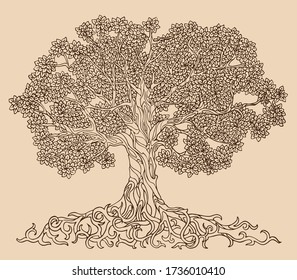
Historians and genealogists also spoke up after following Haley's paper trail and finding critical errors in his research work: much of the story is not supported, or is actively contradicted by the evidence.įor example, the slave "Toby" (supposedly Kunta Kinte) was owned by the Waller family five years before Kunta's arrival in Virginia. Author Harold Courlander took Haley to court and proved that Roots had been plagiarised from his novel The African (1967), with the judge commenting: "Copying was there, period." There was a hefty out of court settlement as at least 81 plagiarised passages were identified. With the spotlight on Roots and Alex Haley, it soon emerged that not everything was as it seemed.įirstly, there was the question of plagiarism.

Why did people cast doubts on the authenticity of Roots? Those documents, along with the myriad textural details of what were contemporary indigenous lifestyles, cultural history, and such that give Roots flesh have come from years of intensive research in fifty-odd libraries, archives, and other repositories on three continents." He writes in the final chapter: "To the best of my knowledge and of my effort, every lineage statement within Roots is from either my African or American families' carefully preserved oral history, much of which I have been able conventionally to corroborate with documents. Having first heard of Kunta Kinte from family legend, Haley made heavy use of oral tradition, but he also described painstaking research in archives and libraries that backed up his findings. Initially, Roots was promoted as "faction", appearing in the non-fiction section of many bookshops: obviously dialogue and many of the small incidents were made up, but Haley was at pains to explain that the core story was all true. Who were you named for-a loved family member, a dear friend, a family associate, or a name that appealed to your parents for some reason? My middle name Prescott is for my maternal grandfather, Prescott Barker Wiske.The 2016 adaptation of Roots, starring Malachi Kirby as Kunta Kinte People of the Jewish faith often name children after a cherished relative who had recently died, whereas Christians often name children after a cherished living relative. WiskeKnowing family naming patterns gives you a deeper sense of your identity. Studying family history helps one to go beyond the present to learn about other people and forces that have helped to shape us.
#Root family genealogy how to#
As a psychologist I enjoy learning about people’s lives and how to help them understand themselves. People have a deep-seated need to know where they come from, what makes them who they are, and whom they take after. Tracing one’s family history is a national obsession. Knowing what their life was like and what critical historical events occurred during your ancestor's lifetime brings your ancestor as well as history to life.īy Carol P. Placing your ancestor in historical context gives you a deeper appreciation for history. Genealogy is much more than filling in ancestor and descendant charts with names, dates, and places. Most likely your journey will help you to discover unknown relatives and to build new friendships. Which side of the family do you resemble? Who do you look like at different ages? Knowing how long your ancestors lived and how they died holds clues for what to watch for in terms of medical problems for you and your descendants. Understanding your social, cultural, familial, and genetic heritage can shed light on your character, appearance, health, family relationships, and your name.

Tracing one's family history is a national obsession.


 0 kommentar(er)
0 kommentar(er)
